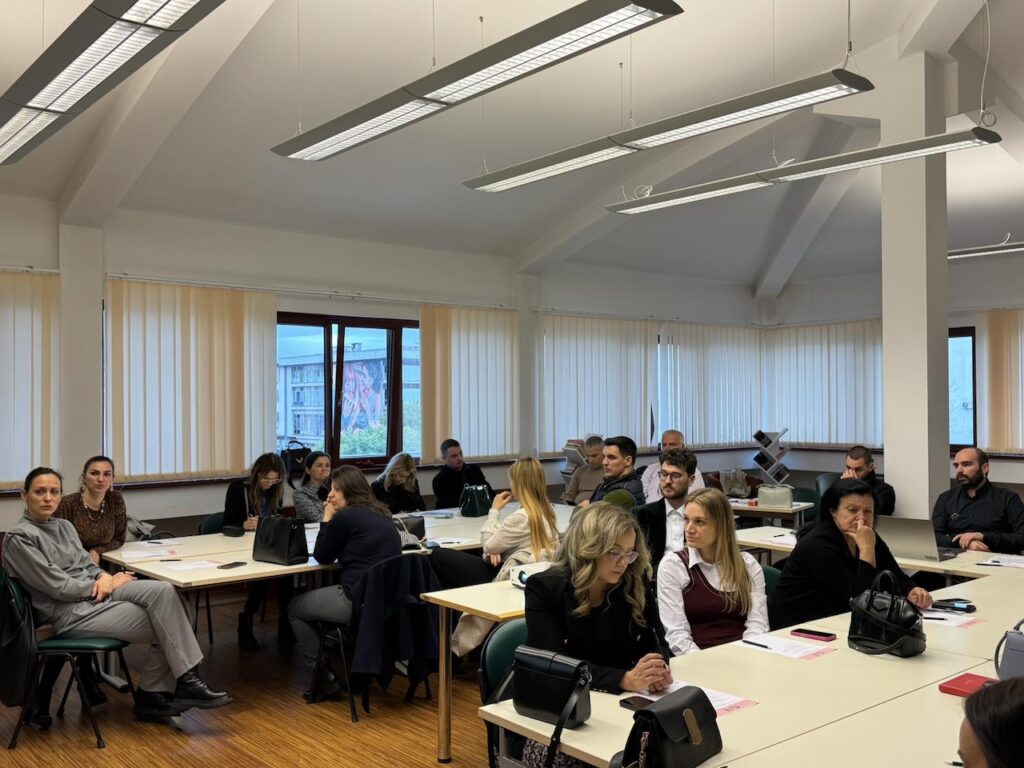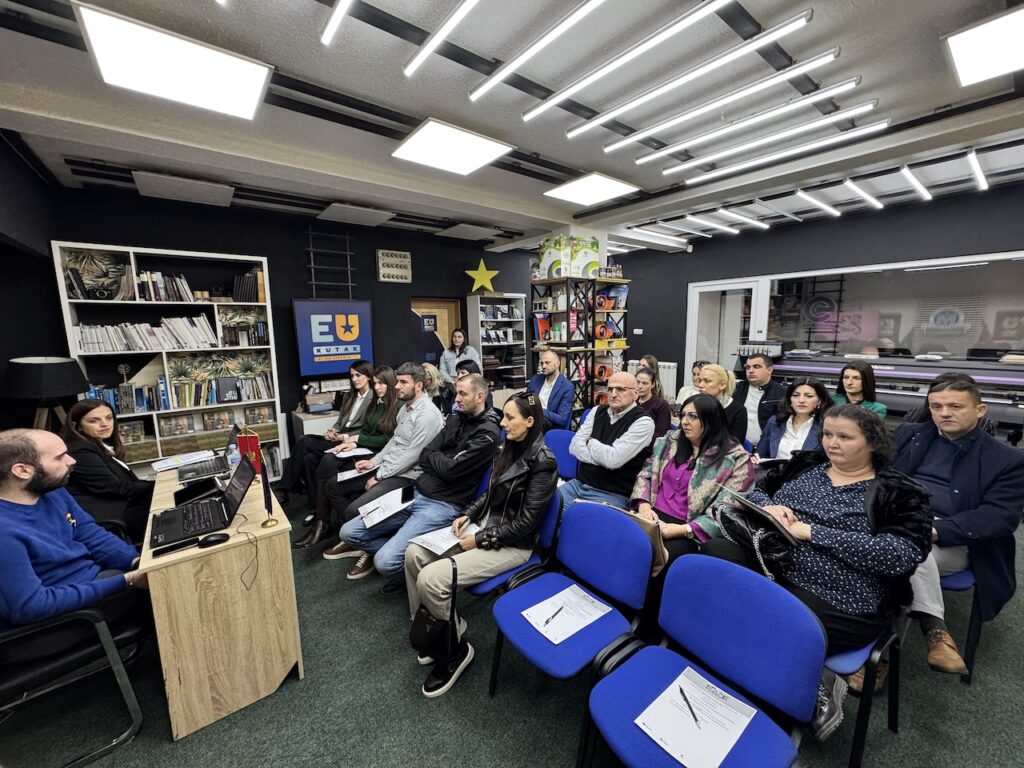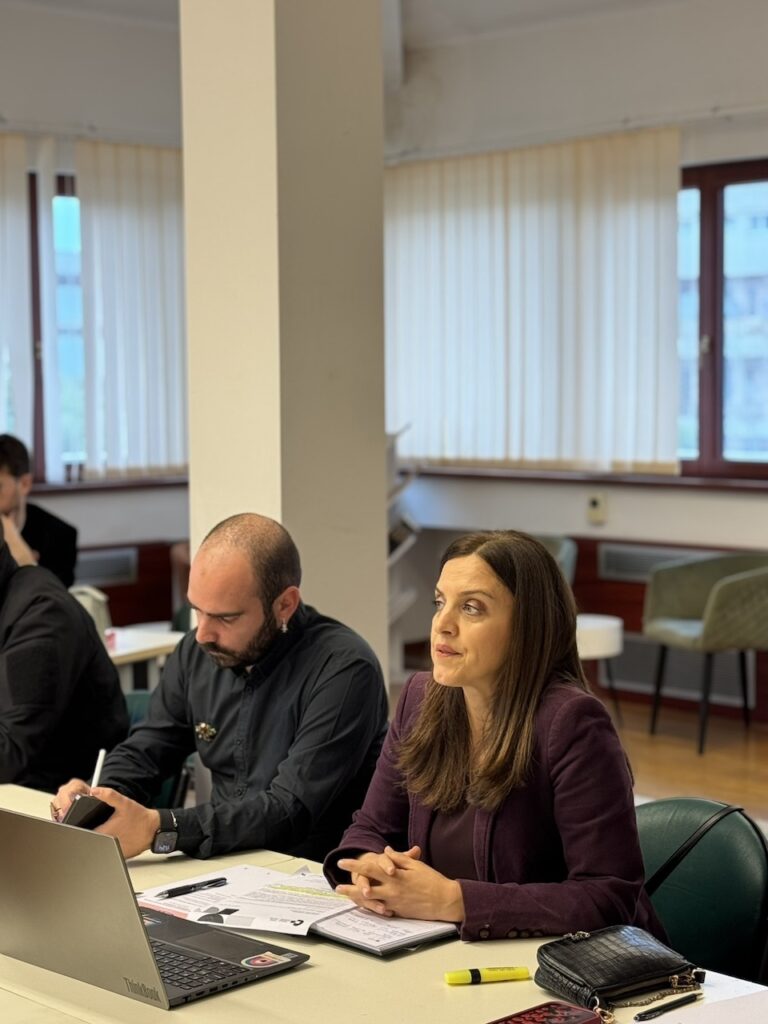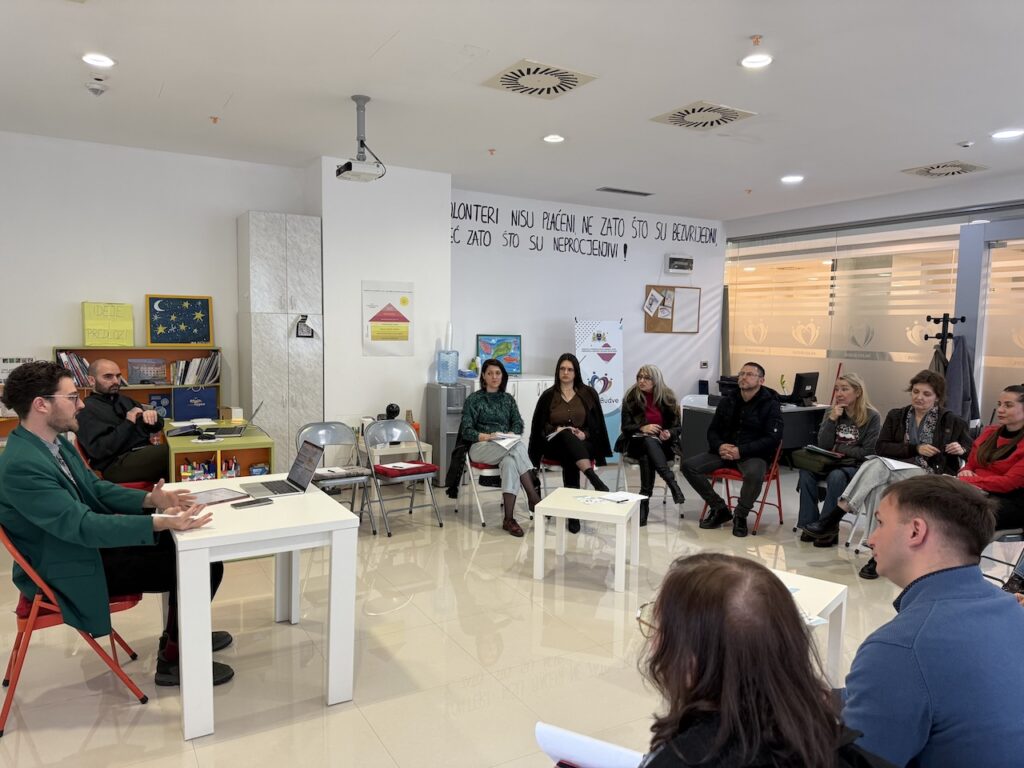“Through institutional action and focused education for both parents and youth, prevention must be established as the primary measure to reduce juvenile delinquency and, consequently, decrease the number of juvenile offenders,” was the key message from meetings organized by the Centre for Civic Education (CCE) in Podgorica, Bijelo Polje, and Budva on the topic of juvenile criminal proceedings – focusing on prevention, prosecution and resocialization.
At the meetings, the CCE team presented a draft analysis on the treatment of juveniles in criminal proceedings. The participants included representatives of all relevant institutions involved in juvenile justice procedures – police, social work centers, prosecution offices, courts, and psycho-pedagogical services. They had the opportunity to help identify the problems affecting the implementation of current procedures and to provide comments, suggestions, and recommendations for improving processes related to juveniles, all of which will be included in the final version of the study.
“We had an excellent discussion that emphasized the importance of multidisciplinary cooperation in addressing juvenile delinquency and peer violence. I believe it is essential to focus on prevention first, and only then improve the repressive system – because when a juvenile reaches the point of committing a criminal act and ends up in court, it’s already too late. That’s why I emphasize prevention as one of the most effective ways to combat juvenile delinquency and peer violence,” stated Predrag Tabaš, Judge of the Appellate Court.
“The topic is inexhaustible and very important, and the rise in violence further highlights the significance of cross-sectoral cooperation. While we may have many differences in how we perceive this problem, that cooperation is not in question. We need this kind of dynamic communication to make intersectoral collaboration more functional and continuously evolving, and meetings like these can greatly contribute to that,” said Marija Lopović, a social worker at the Danilovgrad Center for Social Work.
Marko Radović, a social worker from the “Ljubović” Public Institution, also emphasized prevention. “We need to involve more professions, have more psychologists and pedagogues in schools, as well as social workers. Many aspects of the system have failed… If the Law on Juvenile Criminal Procedure is amended, the focus must also be on prevention. We are all aware that we should not be anchored only in punishments, but in affirming positive values, and only when all resources are exhausted should we talk about repressive measures,” he said.
Stanko Rakočević, a prosecutor at the Basic State Prosecutor’s Office in Kolašin, stressed that “expanding the institutional framework is extremely important, including the establishment of closed-type institutions where sentences would be served and professionals would lead resocialization. Currently, we do not have adequate correctional institutions for resocialization, and that should be a key focus,” he said.
“It is essential to work on prevention and on addressing root causes. Once the consequences occur, it may already be too late for that juvenile,” said Jelena Vučetić, prosecutor at the Basic State Prosecutor’s Office in Bijelo Polje.
“We agreed that institutions are somewhat distanced from one another, and that families, as well as we professionals, are often disconnected from the needs of a young person who may have come – or already has come – into conflict with the law, or has been recorded as a perpetrator of misdemeanors, criminal offenses, peer violence, etc.,” pointed out Esad Plunac, Head of the Department for Children, Youth, Adults, and the Elderly at the Rožaje Center for Social Work.
Nataša Gospić, Senior Advisor I for professional support at the Institute for Social and Child Protection in Podgorica, emphasized that connecting institutions is essential. “There is a shared view that we need to find some intermediaries – experts – who can facilitate this coordination, whether they operate under the Ministry of Justice, judicial bodies such as courts or prosecutors, or are part of social work centers or the education sector. Someone has to take responsibility for initiating this, because institutions will not connect on their own,” she proposed.
“Meetings like this are very important because they offer an opportunity for all of us working on this issue in our professional roles to come together in person – something we often miss. We need time to reflect together, to jointly identify certain problems, and to better understand the challenges our colleagues from other sectors face. Many issues are not clearly regulated, and the topics we discussed today are ones we cannot remain indifferent to,” concluded Saša Mamula, pedagogue from the Center for Social Work in Tivat.
The meetings, which brought together around 70 participants across three regions, are part of the project “HEART: Helping Empowerment and Resilience for Today’s Youth,” which is financially supported by the EU and co-funded by the Ministry of Public Administration.
Marlena Ivanović, Programme Associate




